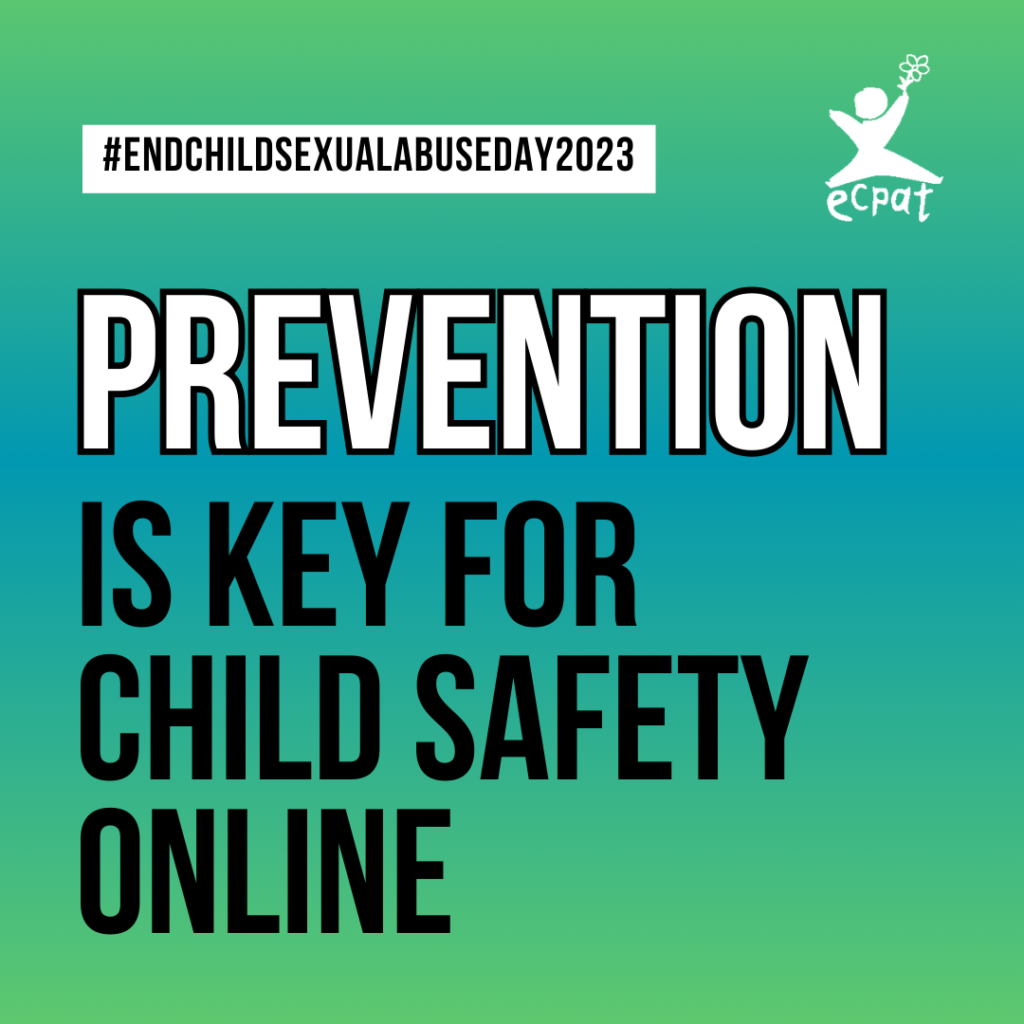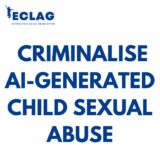The online world is moving fast. In the last three decades, our lives have transformed beyond recognition. From days when we were connecting online from old-LAN computers and cell phones, we now find ourselves immersed in an uncontrolled digital revolution, with Artificial Intelligence and the realms of the Metaverse knocking at our screens.
Yet, as our digital world expands, so do its challenges. Beneath the wonders of the online world lies a darker reality, which contains new forms of dangers such as identity theft, data breaches, violence and discrimination. Worst among these harms, child sexual abuse and exploitation is increasing and evolving every year.

Child sexual abuse and exploitation is happening online, often out of our sight, but with real consequences for the children around us. To prevent harm, it is essential to comprehend the workings of the online world and implement measures that safeguard children from online sexual abuse—without resorting to a complete prohibition of internet access or other restrictive measures. It’s about knowing and using a range of methods and tools to both protect and empower children in their digital lives.
With a focus on the tools to prevent child sexual abuse online, ECPAT calls on government officials, tech companies, professionals, and caregivers to unite and activate on this issue. How? The answers lie in becoming aware of the risks and manifestations of child sexual abuse online and learn which tools are available to fight this horrendous crime. It’s a collective responsibility to educate ourselves and act, ensuring children benefit from the internet and are protected from harm.


Meet ECPAT Project Beacon – Putting children’s rights into the heart of digital policy
What do the EU citizens really think about data privacy and child protection online?
How far are we to ensure Child Safety Online in the EU? A timeline of events.
Towards online child protection in the EU
Why Does Online Child Protection Matter? Here is ECPAT Project Beacon to explain why
ECPAT welcomes European Commission’s proposal to prevent and combat child sexual abuse
What is ECPAT doing to ensure Child Safety Online in the EU?

The case study, conducted with Defense for Children Palestine (DCIP) and SAWA Foundation in Palestine, provides critical support to boys affected by sexual violence across detention centres, displacement camps, and school communities.
Available in: English

ECPAT International, as part of the ECLAG coalition, has joined forces with DOT Europe to support the European Parliament’s position on the explicit criminalisation of AI-generated child sexual abuse material (CSAM) for personal use.
Together, we are urging the Council to uphold and adopt this critical position in the final text of the Recast Directive. The creation and possession of AI-generated CSAM, even without involving real children, fuels the demand for abusive material, normalises harmful behaviours, and contributes to the broader ecosystem of child sexual exploitation. Clear legislation is essential to close legal gaps and ensure that emerging technologies are not misused to facilitate harm against children.

In this study, ECPAT International and its partners explored the issue of technology-facilitated child sexual exploitation and sexual abuse through research aimed at documenting local knowledge and understanding of the issue in four West African countries, assessing practices and identifying localised responses. The results of this research were consolidated in four specific situational analyses.
Available in: English, French

In January 2025, ECPAT International and Jiyan Foundation for Human Rights organised a national workshop in Erbil, Iraq, to discuss the findings of a joint case study on child sexual exploitation in humanitarian contexts and propose survivor-centred responses. The study highlighted the stigma faced by survivors, the growing risks of child sexual exploitation in Iraq due to previous and ongoing crises, and the need for evidence-based advocacy to influence national and international actors.
Available in: English

While the travel and tourism industry’s role in child protection is well recognised, less attention has been given globally to the informal sector. As a result, limited information exists on how the informal sector can help prevent or reduce the risk of child sexual exploitation. This analysis explores the risks children face in the informal tourism sector, how it can be misused by those who sexually exploit children, and documents existing practices to engage the informal sector in child protection. It also examines the role of the sharing economy in preventing child sexual exploitation.
Available in: English, Portuguese, Spanish

The purpose of this framework is to contribute to improved child protection outcomes in travel and tourism, as the result of providing tourism educational professionals with a set of core competencies that can be used as a guidance when developing curricula, modules and training.
This core competencies framework for tourism education professionals to integrate child protection into training curricula is based on identified knowledge, skills and attitudes that have been agreed as essential elements to effectively protect children and youth in the travel and tourism context.
Available in: English